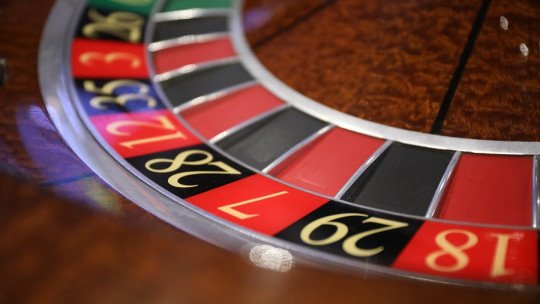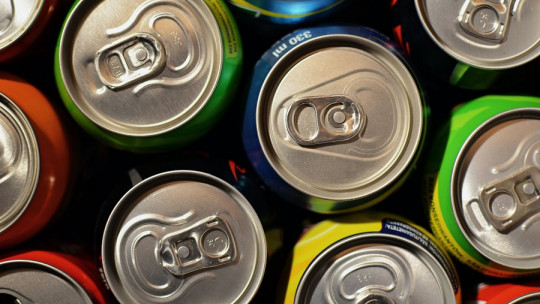
There is no doubt that the concept of “addiction” has currently gone far beyond the health field and is widespread in popular culture. It is common to hear this word when talking about someone who can barely spend a few hours without being in the company of their boyfriend or girlfriend, to describe a person who constantly consumes certain types of sugary drinks, to refer to someone who really likes to cling to power at work or in politics, etc.
However, precisely this widespread use of the term “addiction” has meant that, while everyone has heard it and has a rough idea about what it is, few people really know what a real addiction consists of. , beyond metaphors and the inappropriate use of words. That’s why, In this article we will talk about what an addiction really is and what characteristics it presents as a health problem.
What exactly is an addiction?
The first thing to know about addiction is that it is a pathology, that is, by definition, it is a health problem that negatively affects the quality of life of those who suffer from it; Therefore, it is not a “normal” experience that arises from a certain lifestyle, nor is it a way like any other to feel well-being in specific situations (by momentarily satisfying the need that has made us addicted).
In fact, Addictive disorders are one of the pathologies with the greatest capacity to shorten people’s lives and although it presents different variants, the most severe ones physically damage people in a matter of months.
What characterizes addictions? It is a pathology that affects both the behavior of people (and therefore has a facet of psychological alteration) and their body and, more specifically, their brain (which is why it has another aspect as a neurological and psychiatric disorder). , and is triggered when the person enters a vicious circle of carrying out the addictive experience, on the one hand, and suffer discomfort for going for a while without experiencing that satiating experience for the other.

Thus, addicted people become slaves to a type of experience, which in many cases consists of taking certain types of drugs but which is not always based on consuming substances, and as the pathology progresses, the degree of dependence on these experiences It increases more and more, so that the freedom and health of the individual are increasingly enclosed and eroded.
If we add to this fact that addictions are a relatively widespread disorder among the population and that the habitual consumption of some drugs is so common that it has been normalized and is seen as something “natural” (approximately 60% of the Spanish adult population consume alcohol regularly), when detecting the first symptoms of addiction it is very important Go to health professionals to undergo addiction treatment
This process lasts several months and, after its completion, it is recommended to undergo medical follow-up, since even when the person overcomes the worst part of the addiction, a part of this pathology remains latent, making them more likely to relapse than the average citizen. average (suffering greater immediate consequences).
Fundamental characteristics of addiction
The characteristics that define addictive disorders are the following.
1. The brain’s reward system is altered
The main neurological alteration linked to addiction is the rapid modification of the brain reward system a network of neurons distributed mainly throughout a part of the brain known as the ventral tegmental area and the limbic system, which is a group of brain structures associated with our emotional side.
The function of the reward system is to predispose us to perform certain actions that we have psychologically associated with the experience of pleasure more often, and addiction affects it, causing it to reconfigure itself to dedicate most of our attention, time and efforts to being able to repeat what we have become addicted to
Sometimes, what intervenes on this part of our nervous system is a drug, which physically interacts with our neurons despite being an “external” agent not foreseen by our body; and sometimes, we develop actions without consuming any product that enters our brain, and it is through our actions that we alter our reward system. That is why there are addictions that do not involve taking drugs, such as gambling addiction.
2. They make us suffer withdrawal syndrome
In all addictions there is a withdrawal syndrome, which is a reaction of our nervous system when trying to adapt to a situation in which we spend more hours than normal without satisfying our impulse to repeat the addictive experience.
In the case of less severe addictions this is limited to a feeling of discomfort and certain relatively mild physiological symptoms, such as tremors or dizziness, but in the most dangerous addictions, the withdrawal syndrome can cause death. For example, people with a strong addiction to alcohol or benzodiazepines need to see a doctor to overcome the addiction, since if they try to stop using on their own and without supervision, they may suffer cardiac arrest.
3. They generate the phenomenon of tolerance
All addictions give rise to what is known as tolerance, which consists of a growing tendency to depend more and more on what we have become addicted to That is, as the addiction progresses, we increasingly need greater quantities of what we are addicted to in order to feel satiated for the moment. This means that as time passes and the disease consolidates, we become more and more trapped.
Do you need to start addiction treatment?
If you are looking for therapeutic support to overcome an addiction, contact us.
At CITA clinics we specialize in offering therapy for addictive disorders from both psychology and medicine. We intervene in addictions with or without substances, through outpatient care and/or through outpatient care in our residential module located in an environment surrounded by nature and tranquility, and fully equipped. You can find us in Barcelona and in Dosrius (Mataró).








